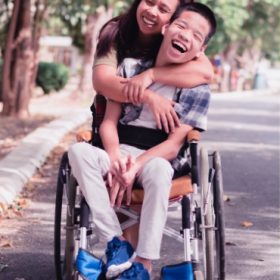Disability Awareness 101 will present fundamental techniques and practical applications utilizing an appropriate level of sensitivity that everyone needs to identify, engage with, and assist people with disabilities.
While there are no prerequisites for this program, we encourage learners to come with an open mind and be ready to be educated on a topic that affects us all. We recommend preparing to critically assess your own attitudes, beliefs, and unintentional participation in an ableist society, so that you will be ready to apply what you have learned to your workplace, neighborhood, community setting, place of worship, and family.
Instructional Methods
The course will be taught using multiple instructional methods, including videos, links to resource articles, and opportunities for critical discussion. Additionally, thought-provoking scenarios and concepts will facilitate appropriate responses and reflection.
Course Format
This is a fully online course. Online classes are not easier than face-to-face lecture courses. To succeed in an online course, you must be motivated and well organized. Regular internet access is essential for successful completion of the course. Your ability to stay on track with the course agenda is critical to full comprehension.
The typical class structure consists of learning modules, which include:
- Short Videos
- Online education
- Scenarios depicted/participant response
- Reference materials
- Quizzes
Learning Outcomes
By the end of the course, you’ll have gained knowledge, skills, and ways to interact with people with disabilities and respond to their needs effectively. Additional information in sidebars and under the resource section will be made available to help you learn more. Your commitment as a student is key to your learning. After finishing the course, you should be able to:
- Define disability and its impact on individuals and larger society.
- Identify your personal feelings about disability, recognize discrimination, and challenge stereotypes.
- Recognize key events in disability history and know how to find resources for advocacy.
- Understand the Americans with Disabilities Act and its applications.
- Differentiate between stereotypes and real-life experiences.
- Identify adaptive equipment and gain a greater understanding of service animals.
- Recognize the importance of equal access and the barriers people with disabilities face in society.
- Learn appropriate ways to interact with people with disabilities and practice using respectful language.





